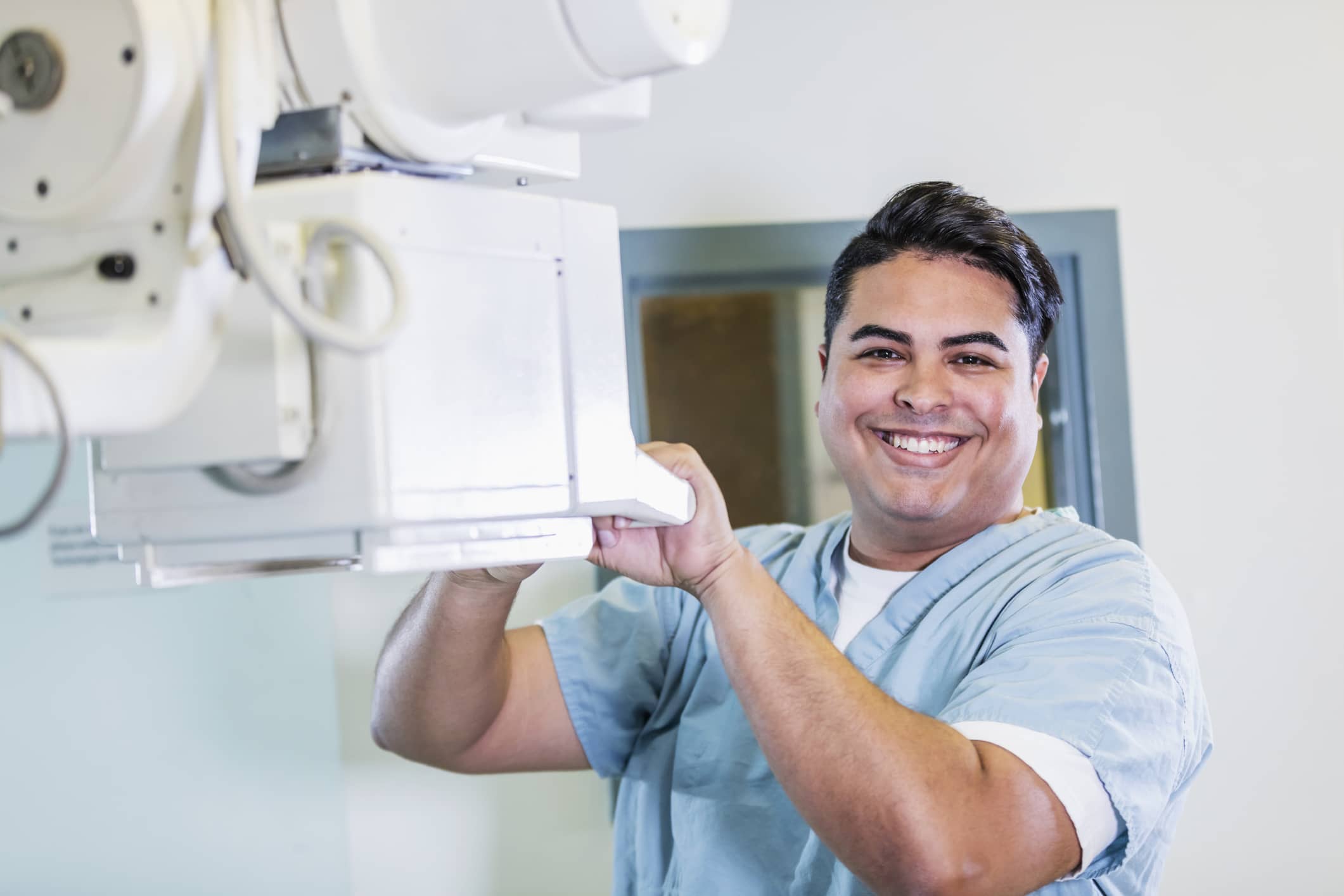
All About Respiratory Therapists: What They Do and Salary Information
Respiratory therapists are health professionals who specialize in breathing and cardiopulmonary function. They work with people of all ages, including preemies with underdeveloped lungs, children with asthma and patients who can't breathe without a ventilator. If you're interested in a challenging and rewarding career, read on to learn about the growing field of respiratory therapy.
What Does A Respiratory Therapist Do?
RTs care for patients with conditions that affect breathing, such as asthma, emphysema, pneumonia, bronchitis, COPD, cystic fibrosis and underdeveloped or damaged lungs.
It's a profession that requires a diverse skill set. Some responsibilities include:
- Conducting diagnostic tests to measure lung capacity, flow of oxygen and carbon dioxide levels in the body
- Consulting with physicians and diagnosing conditions
- Developing treatment and therapy plans
- Treating patients using chest physiotherapy and medications
- Setting up ventilators and other equipment
- Showing patients how to use breathing devices
- Inspecting equipment and advising on changes to improve a home environment
- Advising patients on the dangers of vaping and smoking
Where Do Respiratory Therapists Work?
Hospitals employ 81% of respiratory therapists. You can work in the fast pace of emergency, critical care and OR departments or with a hospital's youngest patients in pediatrics or the NICU.
Skilled RTs are also in demand in many work settings outside of the hospital, including:
- Skilled nursing facilities
- Home healthcare
- Community education
- Pulmonary function laboratories
- Pulmonary rehabilitation
- Sleep laboratories
- Air transport of critically ill patients
Job Outlook
There are more than 134,000 respiratory therapists in the United States, according to the Bureau of Labor Statistics, and the demand for RTs is expected to increase by 21% from 2018 to 2028.
Most of the growth is expected to come from:
- Aging populations needing treatments for conditions that impact lung functioning
- Increased need for RTs in nursing homes and clinics as hospitals try to reduce readmissions
- Advances in research leading to new treatments
- Damage to lung function due to smoking, vaping and air pollution
The need for RTs fluctuates by region, so job opportunities are expected to be especially promising for those willing to travel.
How Much Does A Respiratory Therapist Make?
The mean annual wage for respiratory therapists in the United States $62,500, according to the BLS. The top-paying states for respiratory therapists offer average annual salaries well above the national mean. These include California ($79,640), District of Columbia ($78,540), Alaska ($76,610), New York ($74,890) and Massachusetts ($73,660).
Travel RTs interested in short- or long-term assignments can earn an average of $31 to $36 per hour and receive free accommodation, health benefits, 401(k) plans, travel reimbursement and other perks. Your exact salary depends on location and experience, but typical weekly pay for a travel respiratory therapist is:
- Adult RRT: $1,440 to $1,639 per week
- Home health: $1,304 to $1,521 per week
- Long-term acute care: $1,312 to $1,521 per week
- NICU/Pediatrics: $1,271 to $1,650 per week

How To Become A Respiratory Therapist
Earn a degree
Respiratory therapists should, at minimum, have an associate degree from an accredited program. A bachelor's and/or master's degree enhances your career opportunities.
Obtain a CRT and/or RRT credential
Once you've completed your education, you can obtain two different levels of respiratory therapist credentials:
- Certified Respiratory Therapist (CRT)
- Registered Respiratory Therapist (RRT)
Acquire a state license
Respiratory therapists must obtain a state license to practice in the United States, except in Alaska. Check with your state health board for requirements.

The Benefits Of Specialty Credentials
RTs can pursue many career paths. Once you've gained clinical experience, you can earn additional credentials that help you stand out when applying for your dream job. "Often the existence of a specialty credential is the deciding factor between similarly qualified applicants," explains Katrina Hynes, a section chair at the American Association for Respiratory Care.
The following credentials can be earned through the National Board for Respiratory Care:
- Adult Critical Care Specialist (RRT-ACCS)
- Neonatal/Pediatric Specialist (RRT-NPS)
- Sleep Disorders Specialist (CRT-SDS, RRT-SDS)
- Certified Pulmonary Function Technologist (CPFT)
- Registered Pulmonary Function Technologist (RPFT)
A Certified Asthma Educator credential can be helpful for those working with children.
Travel Opportunities
Respiratory therapists can combine travel and work by accepting exciting temporary assignments in locations throughout the country. Choose where and when you work and build your resume in a variety of desirable settings.
If you're interested in a flexible, dynamic lifestyle as a travel respiratory therapist.
Additional Allied Travel Resources
While you continue your search for the perfect allied healthcare position, AMN Healthcare provides great resources to keep your career moving in the right direction. Begin the application process now, and then learn more about how AMN Healthcare can help you keep your career on the move.
- EAP: Our allied travelers gain access to a valuable set of Employee Assistance Program benefits.
- Allied Travel Jobs by Specialty: Explore allied jobs and learn about hourly salaries and the benefits of working in travel jobs.
- Search All Allied Jobs: Uncover new possibilities in your allied career by exploring both short and long-term options.
- Allied Healthcare Jobs: Learn how we can help move your career in amazing directions, both professionally and geographically by exploring opportunities by each state.
- More Allied Resources: Use the content here to learn everything you need to know about our allied recruitment process, including information on salary and benefits.





